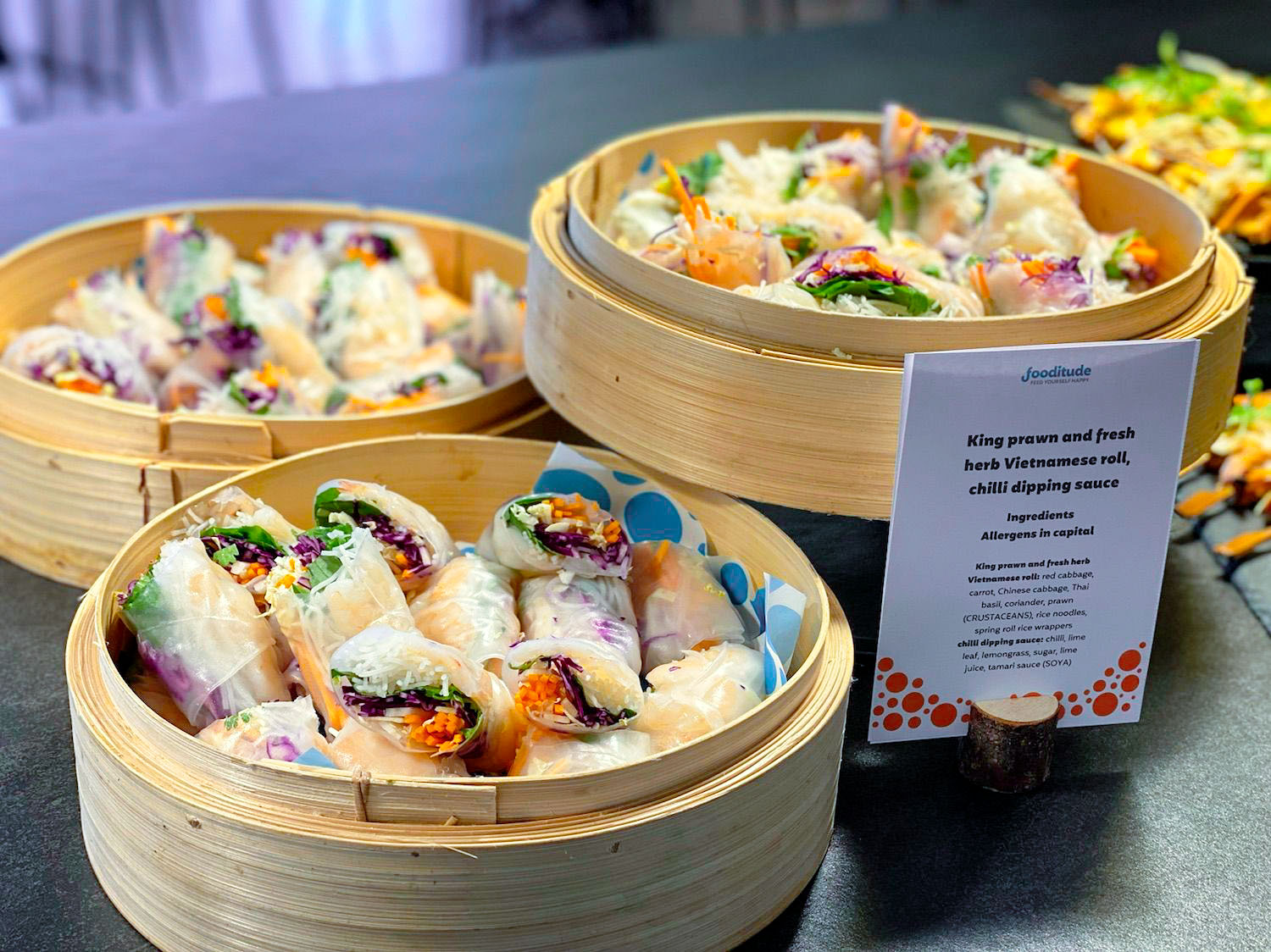How workplace professionals and caterers manage allergens has a real impact on employees who live with allergies day-to-day. With so many people already feeling anxious in the workplace as things begin to reopen post-pandemic, allergy sufferers might feel an extra level of stress as they move from their controlled home environment to the office.
Here are a few recommended steps you can take to make your workplace safe and less stressful for allergy sufferers.
Ask employees (nicely) if they have any allergies
It’s good practice to check in with your employees to see who has discovered or developed new allergies. Be mindful that there are strict laws and regulations about collecting and using employees’ medical information, and that employees are not legally obliged to disclose their medical information – it’s up to them to volunteer it.
Be transparent
When contacting your employees to volunteer information about their allergies, emphasise why you are asking. Be ready to answer their questions, including how you’ll use their data, how you will keep it safe and why it helps you make informed decisions for their workplace safety.
Keep the office clean and ventilated, and watch out for allergen hot spots
Dust, pollen and mould are common triggers for allergies, and they run amok in poorly ventilated and unclean environments. Even office plants can become the source of allergies at work if mould grows on the soil due to poor cleanliness and ventilation.
It’s not just about health and safety, it’s about inclusion
Keeping allergies out of the workplace needs to be a team effort, achieved through a culture of compassion and inclusion for allergy sufferers. Employees should be encouraged to keep coats and jackets away from the main workstations, so any freeloading allergy particles don’t hitch a ride into the main spaces. Cleaning staff should decontaminate every corner of the workplace, whilst facilities managers should do regular checks to ensure that extractor fans, dehumidifiers or air conditioning are in working order.
Allergy awareness
Effective communication is required to encourage workplace behaviours that will protect allergy sufferers. For example, it’s one thing to put up a poster telling employees to keep their area clean, but it’s another (much better) to have a poster explaining how keeping spaces clean can help prevent cross contamination of allergens. In addition, if your company has an online learning platform, consider running an engaging online module about allergies for all employees.
On-site foodservice and allergies
When it comes to on-site catering and foodservice in the workplace, protecting employees and clients from food allergies is a priority. Caterers need to serve meals with clear and accurate allergy information in every meal and everything served on-premise. On-site catering staff should also be informed and ready to deal with any enquiries from employees about food allergens. Moreover, it’s good practice to regularly check with caterers that they are sourcing their ingredients from reputable suppliers who avoid cross-contamination. Finally, workplaces shouldn’t shy away from asking their office caterer difficult questions about safety precautions, including the safe storage of food and utensils.
In a nutshell
Every workplace can adopt a workable strategy that minimises the risks of an allergic reaction occurring. Workplaces need to communicate their health and safety policy to everyone on-site to achieve a maximum level of assurance, from the caterers to the cleaners. But most importantly, people need to know the reasons why they need to act mindfully for allergy sufferers every time they step foot into the workplace. Progress happens when suppliers and everyone on-site is committed to protecting allergy sufferers from harm.

So, how does Fooditude manage allergies as a workplace caterer?
- We use enhanced food safety protocols and systems in every step of our food’s journey, from farm to fork. Our food safety is a part of our culture.
- Our food safety protocols are prescribed by SALSA (Safe and Local Supplier Approval),. We’ve been SALSA accredited since February 2020; this accreditation shows that we far exceed the standard expected by local enforcement authorities.
- Our kitchen and all our client sites consistently achieve the maximum 5 stars from the local EHO
- We’ve invested in industry-leading labelling software that’s been designed to match current UK legislation, including Natasha’s Law.
- Our allergen management is tailored to each of our clients so that their teams can make informed and safe food choices. All meals, snacks and other food items are always served with a full disclosure of all ingredients used.
- We ensure that our allergen management process runs from where we source ingredients, right up to when the final dish is served. All our ingredients undergo a rigorous risk assessment process, so we know what we’re using and eliminate the potential of hidden allergens to guarantee maximum safety.
- Everyone at Fooditude, from the drivers to the chefs to FOH staff, receive comprehensive allergen training from the Food Standards Agency on our e-learning platform. In addition, regular updates and refresher training is provided by the Food, Health and Safety Manager.
We’re here to help!
At Fooditude, we take food allergies seriously. Not only is our London kitchen SALSA approved with a 5-star food safety rating, but our team work hard to ensure that our food is prepared, delivered and served safely with every order. Got a question? Get in touch >





